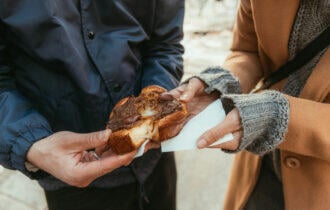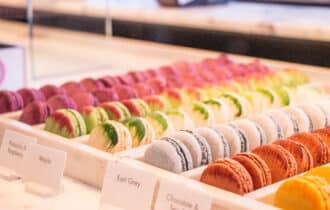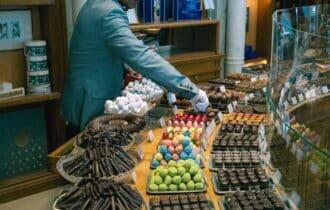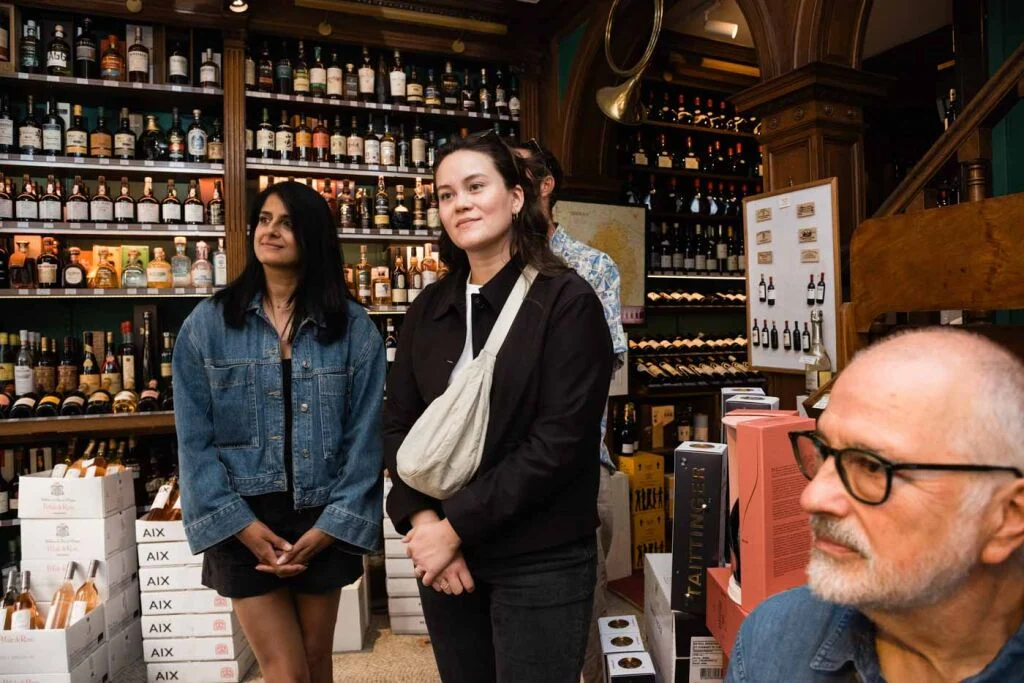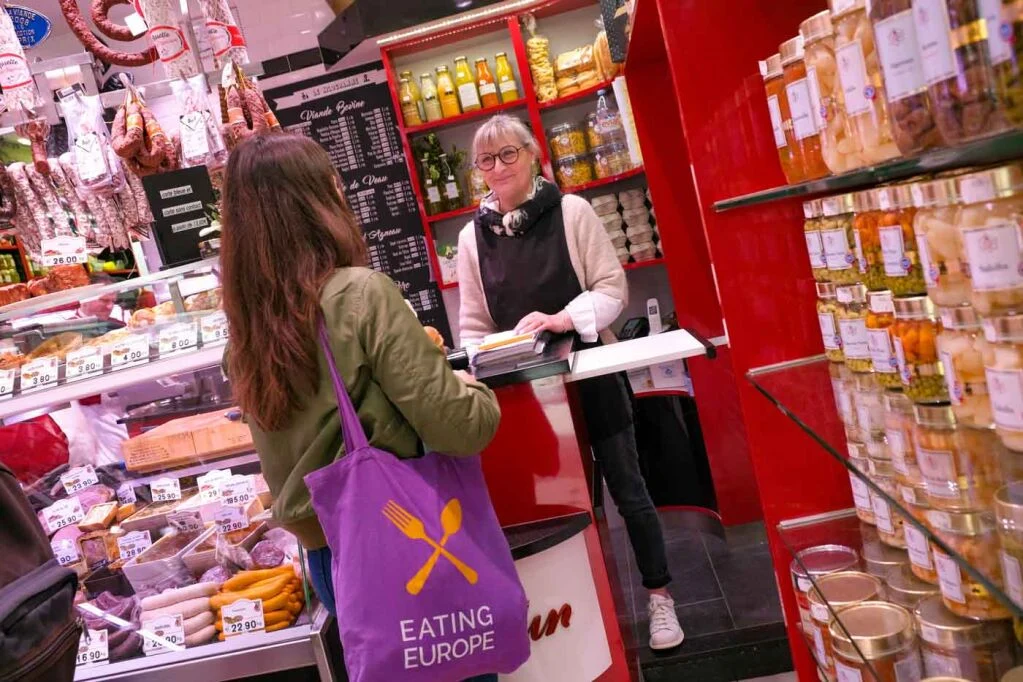Paris: The gastronomic capital of the world
To call Paris a culinary hotspot is a bit of an understatement. Since the 20th century, French cuisine has been practically synonymous with fine dining; even the words ‘chef’ and ‘cuisine’ come from French. French techniques, French dishes, and French chefs became world renowned and set the standard for elevated cooking. While times have changed and the definition of “haute cuisine” has become less heterogeneous, Paris remains one of the most vibrant and celebrated food cities in the world.
For food service professionals in Paris, understanding Parisian food culture and industry trends is essential for success in the industry.

Historical Overview of Parisian Cuisine
The roots of Parisian cuisine can be traced back to the medieval times when the city was a hub of trade and culture. The Renaissance era witnessed the fusion of Italian and French culinary techniques, giving rise to the birth of haute cuisine. In the 17th century, under the reign of Louis XIV, the royal court at Versailles set the culinary trends, leading to the prominence of French chefs and culinary culture.
The 19th century saw the emergence of the classic Parisian bistro, offering hearty, affordable dishes to the masses. Auguste Escoffier, a renowned chef, played a pivotal role in shaping the modern French kitchen with his innovations in culinary techniques and organization. In the 20th century, Paris established its reputation as a global culinary capital. Influential chefs like Julia Child and Paul Bocuse introduced French cuisine to the world, solidifying its position in the international culinary scene.
Today, Parisian cuisine remains deeply rooted in tradition, though it constantly evolves, embracing global influences and trends.
The Landscape of Parisian Dining
Paris is a foodie’s dream; the city is home to world-renowned restaurants and bistros, street food and open air markets, and numerous specialty food shops, cheesemakers, patisseries, and more.
Paris is home to nearly 200 Michelin-starred restaurants, the second-highest number of any city in the world. If you want to work in the fine dining world, Paris is an ideal place to do just that. Bistros and brasseries are classic French establishments offering unpretentious and more affordable dining options to tourists and locals alike. Cafes, with both indoor and sidewalk seating, are a cornerstone of the culture. French cooking is closely linked with a respect for high-quality products and locally sourced ingredients, reflected in the city’s many fresh produce markets and specialty food shops.
However, Paris’s vibrant food scene is also richly diverse. Apart from classic French food experiences, you’ll find everything from pho and ramen to labneh and falafel, and everything in between.
 Modern Trends and Innovations
Modern Trends and Innovations
While Paris is known for certain classic French dishes, you’ll also find the culinary scene is shaped by international influences and gastronomical trends you’d expect of any major cosmopolitan city.
Paris has embraced contemporary dining trends. The city has seen a surge in fusion cuisines, blending traditional French techniques with global influences. Health-conscious dining and vegan options are on the rise, reflecting a growing awareness of sustainability and well-being. Additionally, tech-driven advancements, such as digital menus and online reservations, have become commonplace in the industry.
In the years since the covid-19 pandemic, the food service industry has rebounded but with a surge in consumer preference for affordable and on-the-go options like take-away and food trucks. In fact, “quick service restaurants” were the leading sector in the French food service market in 2022.
Networking in the Paris Food Scene
If you’re new to the Paris food scene, or just looking to expand your opportunities, it is wise to build and leverage a network of peers and mentors in the industry. Engaging with chef communities and culinary schools can open doors to knowledge exchange, mentorship, and potential collaborations. Attending food festivals, workshops, and seminars provides invaluable opportunities to forge connections, sample innovative dishes, and gain insights from industry leaders. Paris hosts an array of these events throughout the year, celebrating its rich culinary heritage while embracing contemporary trends.
Tips for Foodservice Professionals
Understanding the landscape of French cuisine and building a network in the industry will help you succeed as a foodservice professional in Paris. Here are some additional tips:
Learn the Parisian palate: Understanding the Parisian palate is paramount; it means appreciating the delicate balance of flavors and textures that define French cuisine. Local ingredients are treasured, and seasonal offerings are eagerly awaited, so adapting your menu to reflect these elements can set you apart.
Stay up to date: Staying updated with the ever-evolving culinary landscape is equally crucial. Be a culinary explorer, seeking out the latest trends and techniques while honoring the traditions that make French cuisine timeless.
Wine and pairing expertise: Wine is an integral part of French cuisine. Invest in building your knowledge of French wines and their ideal pairings. Sommelier skills can be a valuable addition to your restaurant’s offerings.
Adapt to seasonal changes: The Parisian palate shifts with the seasons. Your menu should reflect these changes, featuring fresh, seasonal ingredients to captivate your customers with the flavors of the moment.

Challenges and Solutions
Navigating the Parisian food scene comes with its share of challenges. First and foremost, the city’s culinary scene can be fiercely competitive. As the culinary capital of the world, Paris boasts an array of extraordinary dining establishments, each vying for the discerning palates of locals and tourists alike. To overcome this, foodservice professionals must strive for a unique culinary identity, offering something distinct that sets them apart from the crowd.
Language barriers and cultural nuances can also pose hurdles, especially for those coming from outside of France. Of course, it will be necessary for non-French speakers who find themselves in Paris to learn some of the language and engage in conversation with native speakers. Other cultural considerations will come in handy as well. For example, while prompt service is a virtue in some settings, in France, there is an emphasis on taking your time to explore the menu and savor the dining experience. Rushing diners through a meal can be perceived as impolite. Also, be aware that tipping practices in France differ from the U.S., and a service fee is often included in the bill in lieu of an expected tip.
Maintaining consistency in quality and service is another significant challenge. Parisian diners have high expectations, and they return to their favorite establishments with the anticipation of a consistently exceptional experience. The key is to establish rigorous quality control measures and invest in staff training, ensuring that every dish served and every interaction with customers reflects your restaurant’s commitment to excellence.
In the bustling culinary scene of Paris, foodservice professionals face unique challenges and cultural nuances that demand their attention. From understanding the local palate to mastering the art of formal dining etiquette, the road to success in this city is both demanding and rewarding. By heeding these cultural intricacies and adopting best practices, professionals can not only thrive but also leave a lasting impression on their patrons.

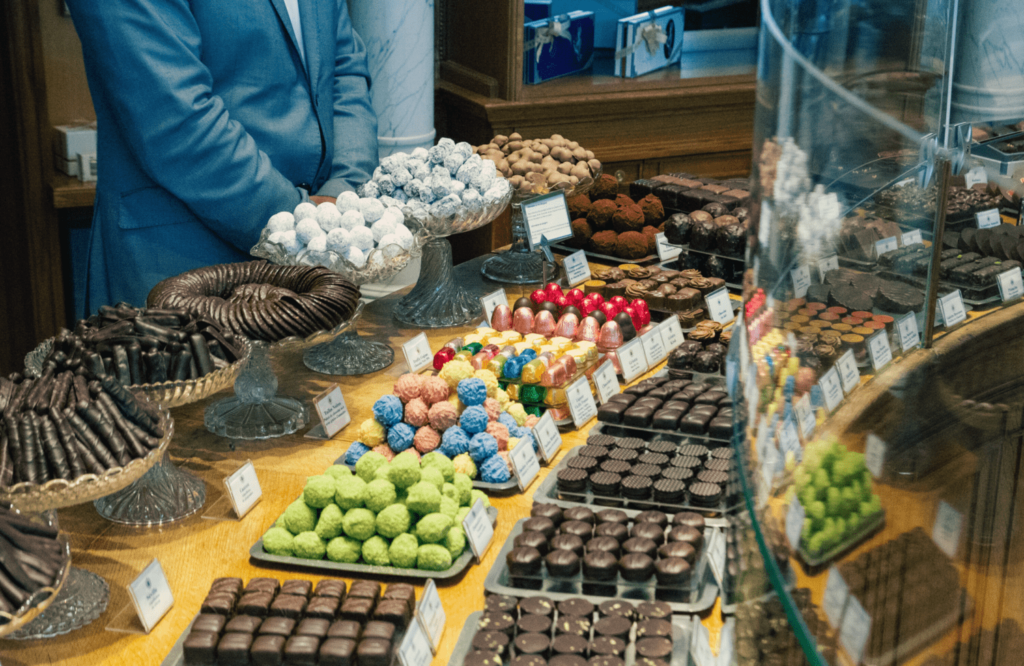
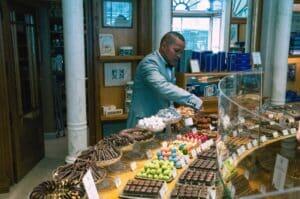 Modern Trends and Innovations
Modern Trends and Innovations